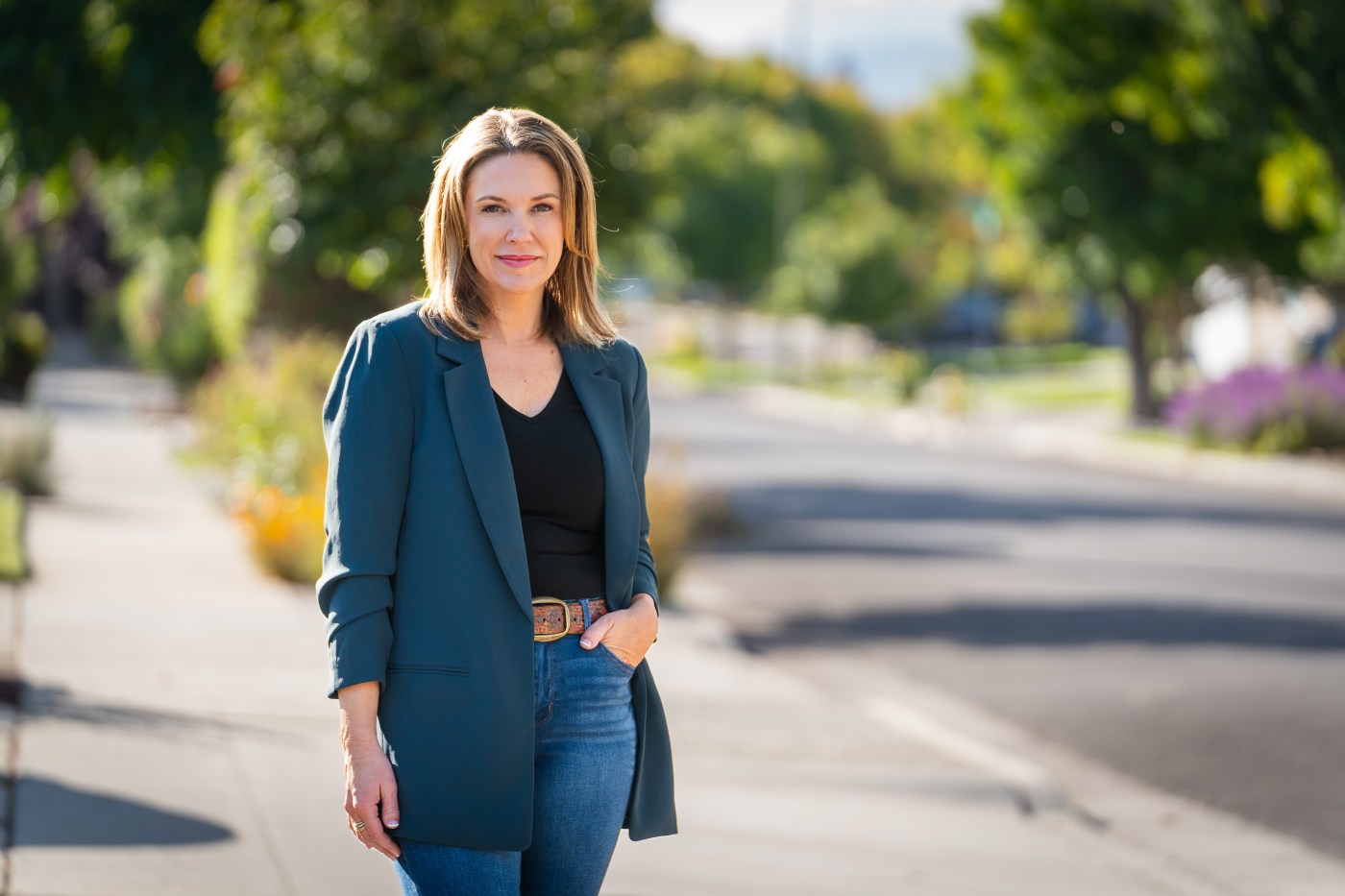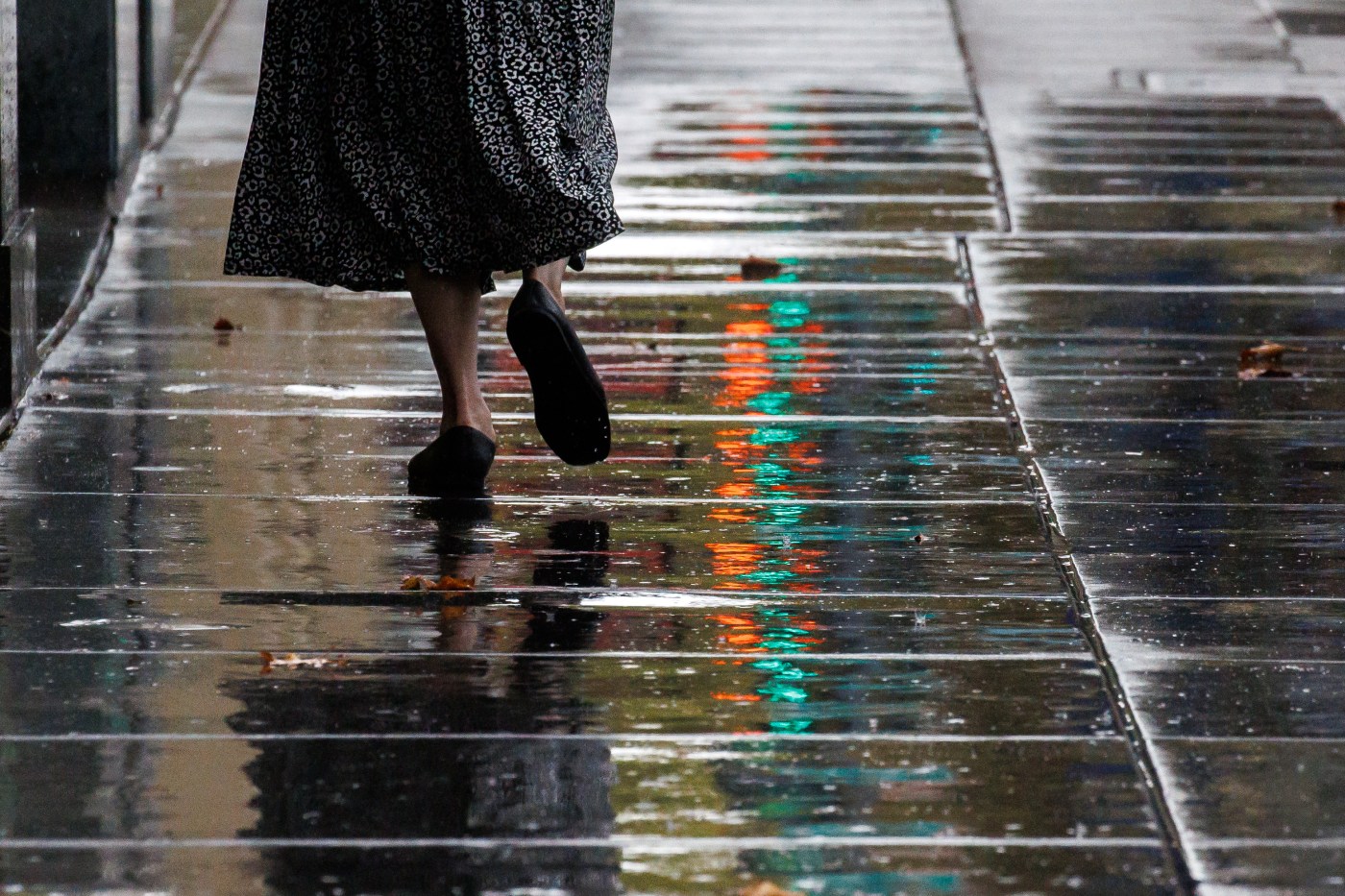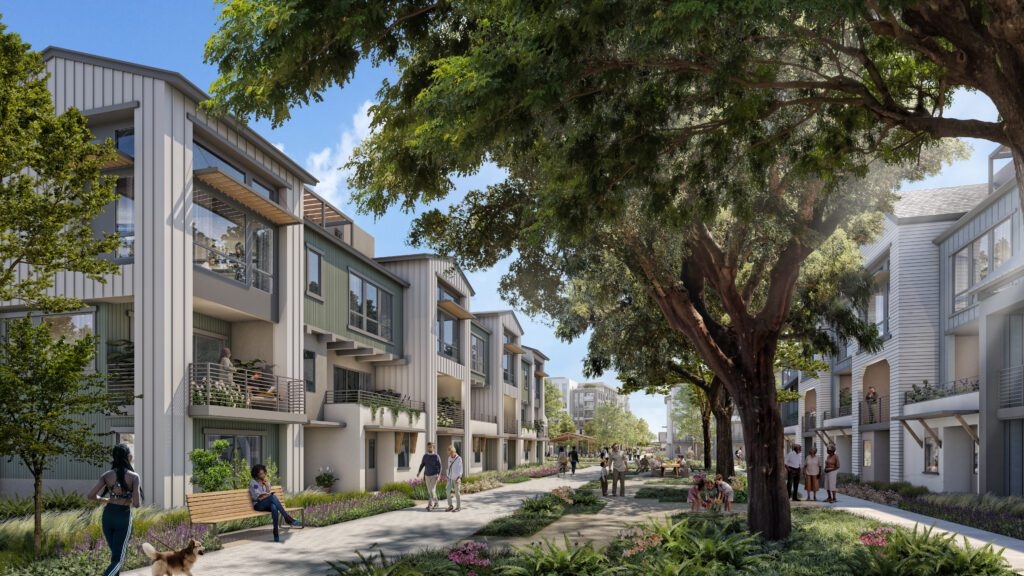Based on the state of play across all government levels, Genny Altwer’s career arc from former hostage negotiator to therapist to now-aspiring San Jose politician seems less implausible and more logical every day.
Related Articles
San Jose approves loan for downtown workforce housing high-rise tower
San Jose to buy site once proposed for major tech campus as it eyes the creation of a sports and entertainment district
San Jose Mayor Matt Mahan, DA Jeff Rosen back Measure A amid concerns about the impact of federal cuts on public safety
San Jose city councilmember accused of defamation, abuse of power by political rival
After acrimony over South Bay homeless issues, new strategy proposed
While the 45-year-old lifelong District 9 resident was complimentary of the policy approach set forth by Mayor Matt Mahan, she said that City Hall could also benefit from a representative with lived experiences and skin in the game on its most pressing issues, which is why she announced Wednesday she will seek her neighborhood’s open City Council seat as Vice Mayor Pam Foley terms out of office next year.
“What I feel deeply right now, and it’s personal to me, is that the community here needs to have someone on City Council who really gets it and that gets the challenges that we’re all facing right now,” Altwer said in an interview with The Mercury News. “That includes cost of living. It includes wanting to beef up the staffing on the police department … and of course, we’re talking about the homeless crisis.”
With the campaign contribution period opening on Tuesday, Altwer is one of five candidates so far who have filed candidate intention statements for District 9, which covers the southwest portion of the city from Cambrian Park to Highway 87.
Among those who have also filed paperwork are Mauna Jalali, Mike Hennessy, Gordon Chesterfor and Scott Hughes, Foley’s current chief of staff.
The District 9 seat is one of five races up for election next year, along with Districts 1, 3, 5 and 7. The primary election will take place on June 2, 2026.
Altwer’s public service roots trace back to her father, who was the resident agent in charge of the Bureau of Alcohol, Tobacco, Firearms and Explosives’ field office in San Jose. After obtaining bachelor’s and master’s degrees in administration of justice and criminal justice, a police ride-along hooked Altwer in, leading her to say, “This is the greatest job in the world.”
In her 13-year career with the San Mateo Police Department, Altwer served in a variety of positions, including hostage negotiator, field training officer, member of the critical incident response team and sexual assault detective.
What she found, though, was that her career overlapped with mental health. That led her to return to school and pursue a private practice as a therapist, where she focuses on therapy for first responders and essential workers, as well as resiliency and wellness training.
Altwer also serves as a PTA member at Branham High School. As a parent with an autistic child, she mentors families dealing with new diagnoses. She believes that by melding her lived experiences, she can translate them into effective policymaking.
“I am that active District 9 constituent who is experiencing what City Hall is trying to do, and experiencing the frustration with why things aren’t getting done,” Altwer said. “So when I go in, what I represent as a candidate is I have eyes and ears on the ground here, and I am actively one of the folks in District 9 who wants to see the change at City Hall.”
Her platform thus far has centered on public safety, homelessness, and driving a more business- and housing-friendly climate, but with some caveats.
Touting a recent ranking that named San Jose the safest large city, Altwer believes the police department needs to add another 100 officers and take advantage of co-response opportunities with mental health professionals when they arise.
While housing availability for essential workers presents a long-term challenge, Altwer also added that one of the lowest-hanging fruits for office recruitment was fixing the city’s police academy, which she said had a high dropout rate and sub-optimal pass rate.
As for addressing homelessness, Altwer has supported the diversion of Measure E funds to build interim housing, questioning the humanity of leaving unhoused residents to wither away on the streets.
But at the same time, she said there needs to be more accountability and transparency built into the system to ensure unhoused residents not only utilize shelter spaces but that they have access to mental health treatment when necessary and that nonprofit providers help them progress and find stability.
“If that’s not happening and the numbers aren’t changing in the right direction, then we do need to look at how we’re utilizing those dollars,” Altwer said. “But for right now, we’ve got to get people off the street and I really do believe it’s a humanitarian crisis. I believe it’s a moral issue. When they cleared out Columbus Street and found a deceased body in an RV, that is not OK.”
As a mother of two teenage daughters, Altwer said the affordability crisis and lack of housing also hit close to home.
But she said that does not mean giving developers carte blanche to build wherever they please. Instead, it means building affordable housing where it makes sense, such as in downtown areas or along transit corridors.
“I would like them to be able to go off to college and come back and have the opportunity to live in San Jose, whether it’s in an apartment downtown, preferably not in my house,” Altwer said.
While politics may represent a new arena for her, Altwer said it should not be so surprising given her lifetime of public service.
“From the time I was 17, I was working for the Secret Service as an intern protecting Chelsea Clinton at Stanford during those years at San Jose State,” Altwer said. “Then going on to be a police officer and working in the mental health field, everything I’ve ever done comes from a place of serving our community, so that doesn’t feel like it’s anything new to me.”





